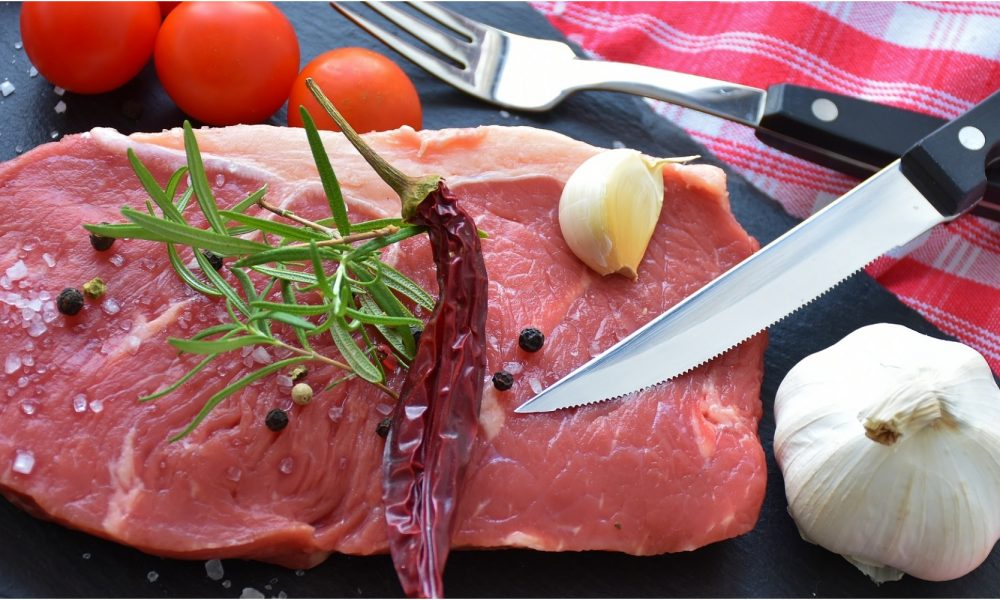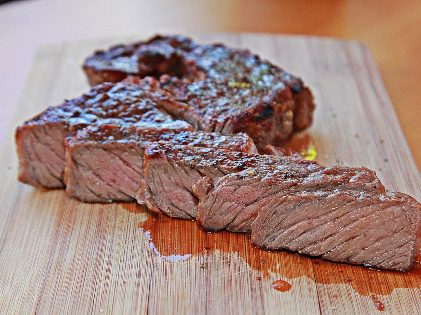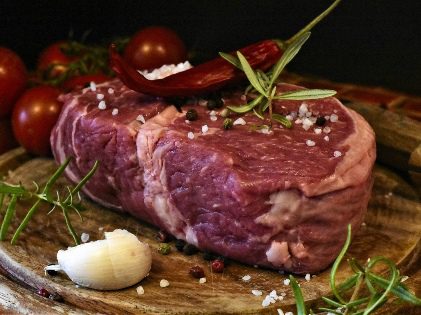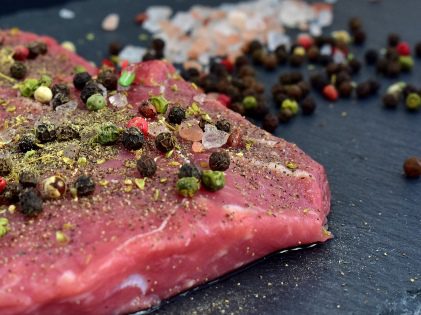
Should You Eat Bison Meat?

Bison belong to the Bovidae family and are one of many species of hoofed mammals. While there is a common tendency to group bison with buffalo, there is a slight difference in their anatomical features. If you look at the list of popular types of red meat, buffalo grabs the second spot just behind beef. Owing to a lot of marketing done over the years, the nutritional profile, and its availability across several regions, the demand for bison meat has increased. Should you consume bison meat, and what are the benefits and drawbacks of bison meat? Let’s find out more.
Nutrition
 Speaking about the nutritional aspect, you can get several essential nutrients from bison meat such as protein, zinc, iron, selenium, B vitamins, etc. A cooked serving from a raw 4 ounce of bison meat offers 17 grams of protein, 6 grams of fat, 124 calories, less than 1 gram of carbs, 2.5 grams of saturated fat, Zinc (35% of the daily recommended value), Vitamin B6 (19% of the daily recommended value), Vitamin B12 (68% of the daily recommended value), Iron (13% of the daily recommended value), Niacin (28% of the daily recommended value), and Selenium (31% of the daily recommended value). Now, have a look at the potential benefits of eating bison meat.
Speaking about the nutritional aspect, you can get several essential nutrients from bison meat such as protein, zinc, iron, selenium, B vitamins, etc. A cooked serving from a raw 4 ounce of bison meat offers 17 grams of protein, 6 grams of fat, 124 calories, less than 1 gram of carbs, 2.5 grams of saturated fat, Zinc (35% of the daily recommended value), Vitamin B6 (19% of the daily recommended value), Vitamin B12 (68% of the daily recommended value), Iron (13% of the daily recommended value), Niacin (28% of the daily recommended value), and Selenium (31% of the daily recommended value). Now, have a look at the potential benefits of eating bison meat.
Benefits of Bison Meat
Bison meat is known to be an excellent source of protein. From every 113 grams of raw bison meat, you get around 17 grams of protein. Proper protein intake is a must for various processes within the body, such as nutrient transport, hormone production, and tissue rebuilding. For active individuals, the recommended value of protein intake is 1.4 to 2 grams per kilogram of body weight. Bison meat will take you closer to the daily recommended value.
Next, bison meat is rich in B vitamins. From 113 grams of raw bison meat, you get 68% of the daily recommended value of vitamin of B12, 19% of the daily recommended value of vitamin B6, and 28% of the daily recommended value of vitamin B3 or niacin. B vitamins have an important role to play in red blood cell formation, energy and neurochemical production, and other cellular processes that take place throughout your body.

Bison meat has high quantities of zinc, iron, and selenium. From 113 grams of raw bison meat, you get 13% of the daily recommended value of iron, 31% of the daily recommended value of selenium, and 35% of the daily recommended value of zinc. Iron, zinc, and selenium have their benefits for the human body.
Iron helps in the formation of red blood cells, which transports oxygen in your blood. Zinc is important for the immune system of your body. It also plays an important role in promoting cell division and growth. Selenium is an antioxidant that helps in fighting oxidative stress. Fourth, bison meat is low in fat and is fairly low in calories. While 113 grams of raw bison meat provides 6 grams of fat, you get only 124 calories.
Flavor
Last but not least, bison meat is known for its mild flavor. Therefore, you can easily substitute any other red meat with bison meat in every recipe, be it stews, stir-fries, and chillis. You can also enjoy bison meat like a steak or a roast.
Downsides of Bison Meat
 Price is the major drawback of bison meat. In most areas, bison meat can be very expensive. The cost of grass-fed bison would cost you more than grass-fed beef. However, it depends on the demographic area. Compared to other red meats, bison meat can get overcooked. It will be dry and hard-to-chew. If you use a slightly lower flame, you can avoid overcooking.
Price is the major drawback of bison meat. In most areas, bison meat can be very expensive. The cost of grass-fed bison would cost you more than grass-fed beef. However, it depends on the demographic area. Compared to other red meats, bison meat can get overcooked. It will be dry and hard-to-chew. If you use a slightly lower flame, you can avoid overcooking.
Bison vs. Beef
Bison is a leaner meat than beef. The latter is higher in calories. On the other hand, bison meat can get overcooked very easily. Bison and beef are more or less the same in taste. There can be a little difference in texture and flavor, depending on different cuts of meat. While most beef is grain-fed, bison is grass-fed. With the increase in demand for bison meat, some farmers are replacing grass with grains.
The nutritional profile of bison meat is good for your overall health. Bison meat is a good substitute for other types of red meat. You can add bison meat to your diet to make it well-balanced.
More in Nutrition & Weight Loss
-
`
The Physical Signs of Hunger and How Mindful Eating Makes a Difference
Hunger is one of the most basic yet essential signals our body uses to communicate its need for energy. However, many...
December 15, 2024 -
`
Why Did Chris Pratt Call Anna Faris Before Proposing to Katherine?
Chris Pratt, the beloved star of “Guardians of the Galaxy,” made headlines when he revealed that he called his ex-wife, Anna...
December 3, 2024 -
`
6 Proven Tips to Tackle Insurance Claim Denials Successfully
Claim denials are a common hurdle for healthcare providers and professionals, even for those who follow the necessary procedures to avoid...
December 1, 2024 -
`
5 ‘Bad’ Fitness TikTok Trends You Shouldn’t Follow
TikTok has become a haven for creative fitness advice. But not all trends are worth your time or your health. From...
November 23, 2024 -
`
Does Drinking Water Affect Adrenal Hormones?
Drinking water is often seen as a simple way to stay hydrated, but it has deeper effects on our body than...
November 14, 2024 -
`
Why We Feel the Loss of Celebrities So Deeply?
Celebrity grief might sound strange at first. After all, most of us have never met these famous figures in person, yet...
November 5, 2024 -
`
Are High Deductible Insurance Plans as Ideal as They Appear to Be?
High deductible insurance plans have been a hot topic for years, especially as healthcare costs continue to rise. For many Americans,...
October 31, 2024 -
`
How Training Load Data Can Transform Your Exercise Routine
Tracking progress during workouts is challenging. Simple metrics like mileage or time don’t show the whole picture. Understanding the overall effort...
October 26, 2024 -
`
Katy Perry’s Weight Loss Journey: Secret Diet Tips Revealed
Katy Perry’s weight loss journey has been making headlines, with the pop star shedding 20 pounds over the past few months....
October 16, 2024















You must be logged in to post a comment Login